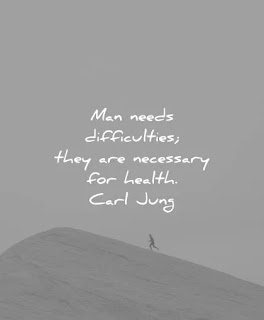7 Ways To Improve Your Health Quickly
Now days, more and more people starts to realize the importance of the personal health. I always believe that personal health has more value than any other things, such as money and work. That is the reason for me to improve my healthy life. Base on my physical fitness, I want to start to improve my personal health by healthy diet, daily fitness training and the sleep habits. Maintaining a healthy body is not that easy and not so difficult also. Always there is a need to be healthy because unhealthy body will be attacked by many diseases. Here we will discuss about some tips which will help to have a happy and healthy life.
Exercise also pays a vital role in keeping your body healthy. Regular exercise will also keep your body in good health. By exercise it doesn’t mean a simple and slow walk. It should be in such a way that your body should start sweating. You can go for running, do cycling, walking faster etc. Daily find some time 30 mints to one hour per day for your exercise. Have a regular checking of your weight and try to control it. It’s nice to have Medical checkups and dental checkups by which you can have an idea about your health condition.
There are following ways to improve your health quickly.
- Drink more water.
- Eat slowly.
- Eat more fruits and vegetables.
- Work out (at least) 3 times a week.
- Quit smoking.
- Get a fitness tracker (and use it).
- Sleep for 6 – 8 hours daily.
Drink more water:
The signs you're drinking enough water include: You'll urinate more. You'll feel less hungry and may even lose weight. You'll probably experience more comfortable digestion (less heartburn).
Water needs vary based on numerous factors. As drinking too much water can disrupt your body's electrolyte balance and lead to hyponatremia, 3 liters (100 ounces) may be too much for some people.
Eat slowly:
The benefits of slow eating include better digestion, better hydration, easier weight loss or maintenance, and greater satisfaction with our meals. Meanwhile, eating quickly leads to poor digestion, increased weight gain, and lower satisfaction. When you eat slowly, you digest better.
A new study in the BMJ Open finds that people who eat slowly, rather than scarfing down their food, tend to weigh less. And slowing down their eating speed over the years seemed to help them lose some weight.
Eat more fruits and vegetables:
A diet rich in vegetables and fruits can lower blood pressure, reduce the risk of heart disease and stroke, prevent some types of cancer, lower risk of eye and digestive problems, and have a positive effect upon blood sugar, which can help keep appetite in check.
Fruit and vegetables are a good source of vitamins and minerals, including folate, vitamin C and potassium. They're an excellent source of dietary fibre, which can help to maintain a healthy gut and prevent constipation and other digestion problems. A diet high in fibre can also reduce your risk of bowel cancer.
Work out (at least) 3 times a week:
Most research shows that to really improve aerobic fitness or strength, people need to work out at least three times a week. Ideally, you should do something fitness-related every day, since inactivity is a real killer.
Research Says About Training Frequency. ... In fact, training each muscle 2 or 3 times per week resulted in 3.1% greater muscle growth than training each muscle just once per week. And since total workout volume, exercises, and rest between sets were equated for all the studies included in this analysis.
Quit Smoking:
We all know the health risks of smoking, but that doesn’t make it any easier to kick the habit. Whether you’re an occasional teen smoker or a lifetime pack-a-day smoker, quitting can be really tough.
To successfully stop smoking, you’ll need to address both the addiction and the habits and routines that go along with it. But it can be done. With the right support and quit plan, any smoker can kick the addiction—even if you’ve tried and failed multiple times before.
Get a fitness tracker (and use it):
A fitness tracker is simply a tool for measuring progress, rather than the end-all-be-all of your routine. As such, you'll want to begin your fitness journey with defined yet reasonable goals: Taking a certain number of steps, getting a specific number of minutes per activity or losing a number of pounds.
Sleep for 6 – 8 hours daily:
A new analysis of 11 studies that included a total of more than 1 million adults without heart disease suggests the sweet spot is six to eight hours a night.A study has found that having either more or less than six to eight hours sleep a night could increase the risk of heart disease or stoke. Between six and eight hours was found to be the optimum amount of sleep.If you often get colds, ensuring that you get at least 8 hours of sleep per night could be very helpful. Eating more garlic can help as well. Getting at least 8 hours of sleep can improve your immune function and help fight the common cold.











Comments
Post a Comment
Thank you for your comment!
For more interesting health tips and tricks please visit my blog again and again .